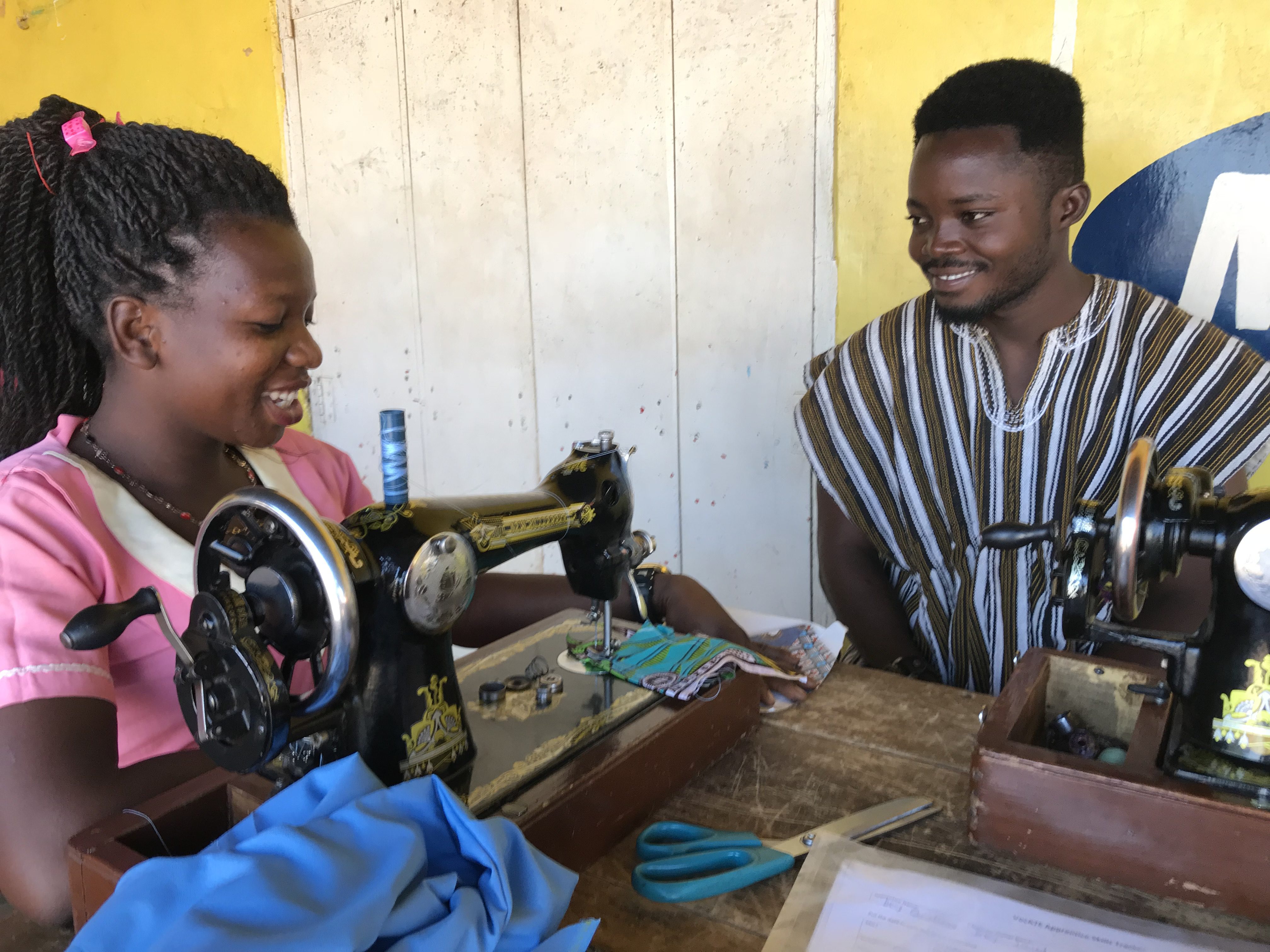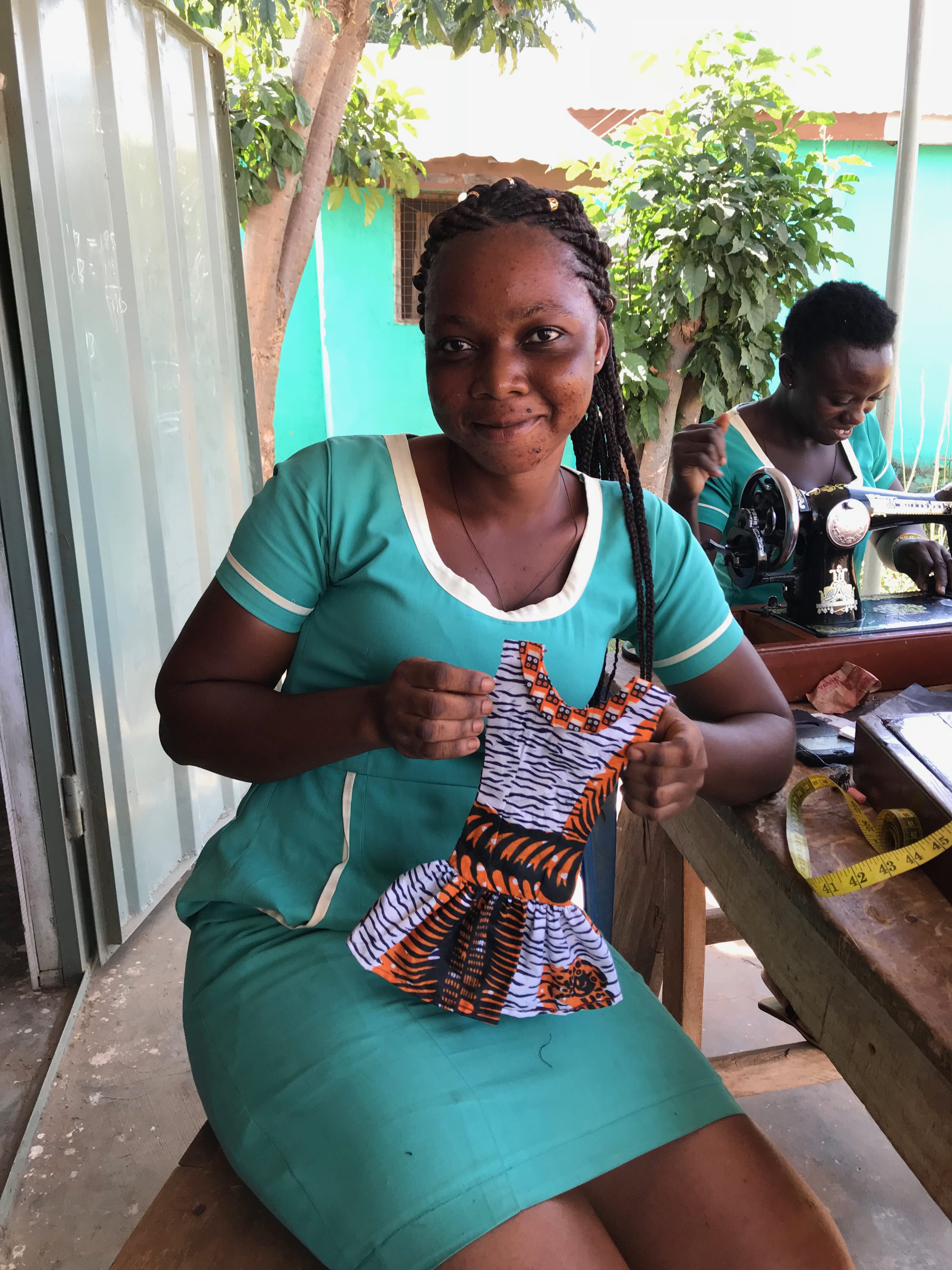VocATE: A Pilot Programme
Evaluation – November 2018
The single greatest means of transforming a community in a sustainable way is to empower community members to support themselves.
VocATE is a vocational learning programme launched by ATE in 2016, as a development of the business development programme, BizATE. It was developed to tackle the challenges created in the Lawra context: a poor, rural area with low completion rates for basic education and an extremely limited job market. We wanted to create a programme that would provide out-of-work individuals with the opportunity to learn lifelong, employable skills through vocational training: to provide the skills for individuals to sustainably support themselves.
In 2016 we launched our first cohort of apprentices composed of 2 hairdressers, 7 seamstresses and 1 weaver. ATE facilitated entry into a 3-year apprenticeship with Small Business Owners (SBOs) who provide on-the-job training. Apprenticeships are difficult to establish in Ghana without connections or capital, and so this first stage in the process is an important one! ATE agrees terms with each party and aids in providing financial assistance. This covers initial costs such as equipment requirements, uniforms and starting fees. These initial costs create a considerable barrier for the average Lawra resident but we ask families of the apprentices to make a financial contribution as well. This is crucial in bringing the family in behind the apprentice and the programme to encourage their support from the very beginning. Apprenticeships can be challenging and family support is important to success.
Apprenticeships in Ghana are unpaid and coupled with their long duration, this can make them incredibly challenging to complete. To support the learning process and best ensure completion, ATE implemented regular, monthly monitoring visits. These visits were vital in recording progress in skill uptake, in ensuring the trainer/trainee relationship remained favourable, and to promptly identify and resolve external issues that could negatively impact continuation of the learning process.
Our evaluation revealed the immense value in our monthly monitoring, from the perspective of both the trainer and the trainee. Trainers in the programme found the value of ATE’s monitoring reflected in the improved work ethic of ATE apprentices compared with other experiences. And trainees equally found that ATE’s monitoring incentivised their trainers to teach them new skills or new techniques. In our research, we found this was vital to prevent apprentices being intentionally held at a level where they couldn’t graduate, but could add value to the SBO through work productivity.
Our ongoing monitoring as well as the recent evaluation highlighted changes we can make to improve the learning process and better support ATE apprentices. One of the most significant improvements we have implemented is a monthly budget that can be used to buy learning materials or fund equipment repairs. The amount of learning materials are required varies according to vocation, however, we found that to advance through their training, access to practice materials are vital. Without practice, apprentices are unable to advance to customer work, and without regular customer work they cannot gain the experience, skill and confidence required to master their vocation.
7 of the current 10 apprentices are set to graduate in October this year when they will sit an independent exam to test their skills. On completion, our aim is to support each graduate into employment. This may involve assisting in negotiating terms and wages at an established business, or fast tracking graduates into our business development programme, BizATE, to support them to start their own sustainable and profit making business.
As we near the end of the first cohort of VocATE apprentices we are pleased to reflect back on the pilot programme we have delivered, and we are excited to begin receiving applications to start the second cohort of apprentices in autumn 2019. To read ‘VocATE: A Pilot Programme Evaluation – November 2018’ in full please visit our website: https://ateghana.org/wp-content/uploads/2016/05/VocATE-Evaluation-2018.pdf




